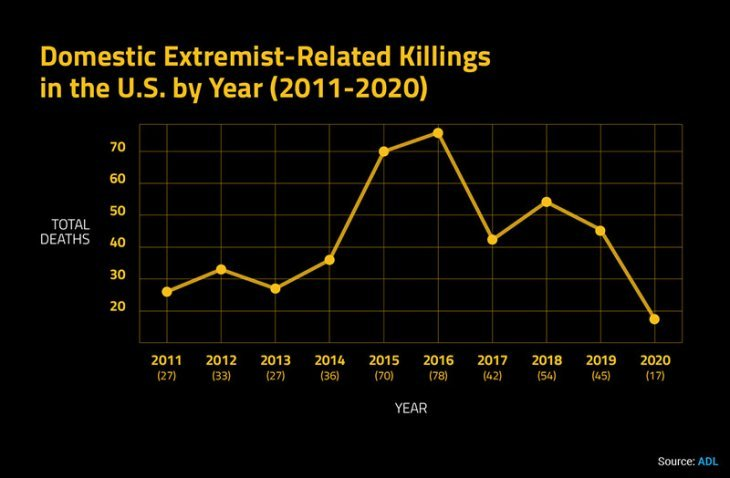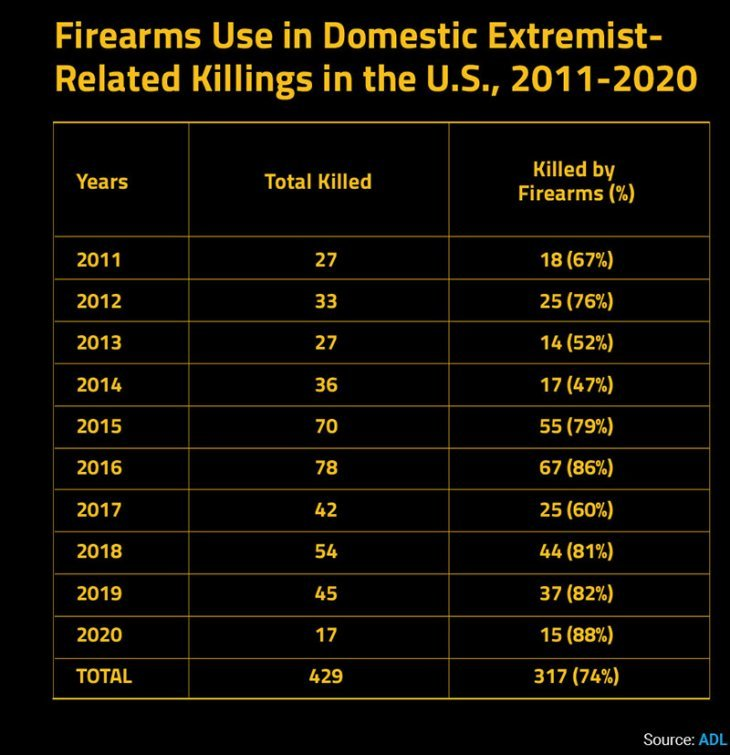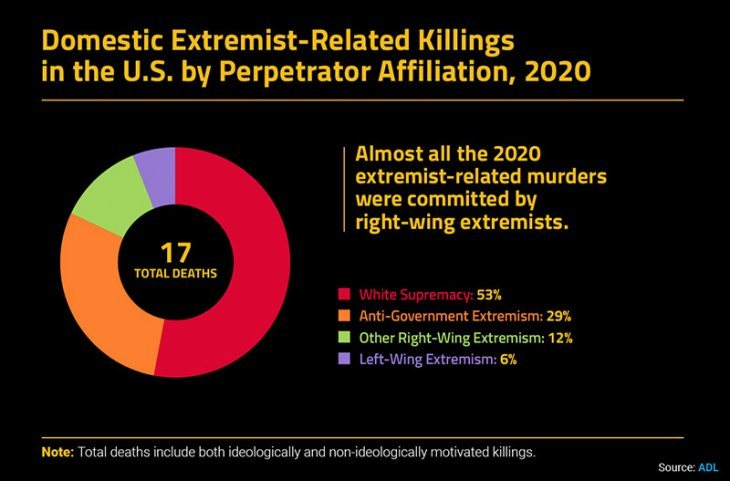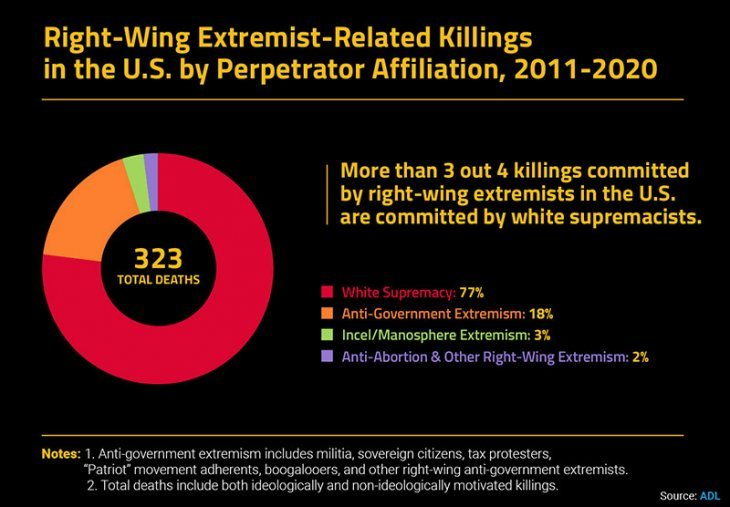Yesterday we released a new report on the extremist murders of 2020: https://www.adl.org/murder-and-extremism-2020. I was swamped yesterday and didn't have much of a chance to say anything about it, but I thought I'd walk you through some of the findings here.
The bottom line is that we were able to document at least 17 extremist-related killings from last year. Those deaths are bad, but the total was far less than we've seen in most recent years, which is good.
The main reason why numbers dropped so much? The absence of any of the extremist-related mass shooting sprees (and one vehicular attack) that increased casualty totals so much in recent years. Unfortunately, there is no guarantee 2021 will see a similar absence.
Even without any mass shootings, once again, most extremist-related murders were conducted with firearms, something that is true most years.
When we look into the ideological affiliations of the perpetrators, we see that right-wing extremists were responsible for 16 of the 17 deaths. A left-wing extremist was responsible for the 17th.
Right-wing extremists kill more people in the U.S. than other types of domestic extremists in most years. They are more willing to use deadly violence than left-wing extremists and much more numerous than domestic Islamist extremists. The other sources can't be ignored, though.
When one examines the 16 killings by right-wing extremists, one finds 9 were by white supremacists, 5 by anti-gov't extremists, and 2 by "manosphere" extremists. Over the past 10 years, white supremacists were responsible for about 3/4 of the right-wing-related killings.
There are several reasons for this. There are multiple movements within the white supremacist movement, all willing to engage in violence. Also, white supremacists are responsible for a number of non-ideological murders each year as well as ideological ones.
At least four but probably five were committed by people associated w/white supremacist prison gangs, which are active both behind bars and on the streets. We've counted at least 79 such murders over the past 10 years--the true number is certainly higher still.
Five of the killings came from anti-government extremists (a category that can include the militia & patriot movements, the sovereign citizen movement, the tax protest movement, anti-gov't conspiracy theorists, anti-gov't survivalists, and boogalooers, among others.
Two of the 2020 killings were by sovereign citizens, two more by boogalooers, and one by an anti-government conspiracy theorist. The sovereign citizen movement ( https://www.adl.org/sites/default/files/documents/assets/pdf/combating-hate/Lawless-Ones-2012-Edition-WEB-final.pdf) has been around for 50 years, the boogaloo movement basically 1.5 ( https://www.adl.org/boogaloo )
The final two killings by right-wing extremists were both committed by one person--in two separate incidents, one on each coast--who was an extreme "men's rights" activist--part of the milieu of toxic masculinity often termed the "manosphere."
The 17th murder in 2020 was committed by a left-wing extremist, who shot a right-wing extremist at a protest in Portland. Since the 80s, the far left has not killed many people in the U.S.; most who did kill targeted police.
One statistic was thankfully absent in 2020: it was the second year in a row that no murders associated with domestic Islamist extremism took place. Hopefully, this trend will continue in the future.
Although extremist murders went down, using only one statistic in isolation, like the number of murders or of extremist groups, is an imperfect way to measure extremism. Murder statistics in particular are vulnerable to unique, high-casualty events that can distort analysis.
Our count of right-wing terrorist incidents in 2020, for example, was somewhat higher than in the previous year. So the number of extremist-related murders being down does not mean that extremism, or its dangers, are necessarily less. But less loss of life is a good in itself.
P.S. One question I've been asked a lot is whether and to what degree the pandemic may have played a role in reducing the violence. It is certainly possible that it did (although extremists of any kind were less likely to stay at home than others) but one can't really know.

 Read on Twitter
Read on Twitter






